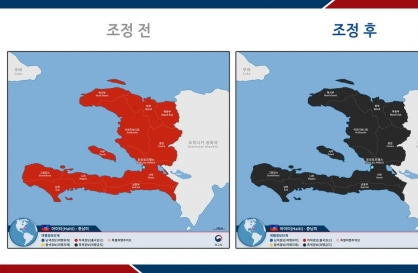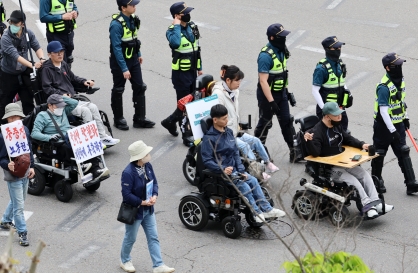Pakistani acid attack victim Fakhra Younus had endured more than three dozen surgeries over more than a decade to repair her severely damaged face and body when she finally decided life was no longer worth living.
The 33-year-old former dancing girl -- who was allegedly attacked by her then-husband, an ex-parliamentarian and son of a political powerhouse -- jumped from the sixth floor of a building in Rome, where she had been living and receiving treatment.
Her March 17 suicide and the return of her body to Pakistan on Sunday reignited furor over the case, which received significant international attention at the time of the attack. Her death came less than a month after a Pakistani filmmaker won the country’s first Oscar for a documentary about acid attack victims.
Younus’ story not only drives home the woeful plight of many women in conservative Muslim Pakistan, it is also a reminder of how the country’s rich and powerful operate with impunity. Younus’ ex-husband, Bilal Khar, was eventually acquitted, but many believe he used his connections to escape the law’s grip -- a common occurrence in Pakistan.
More than 8,500 acid attacks, forced marriages and other forms of violence against women were reported in Pakistan in 2011, according to The Aurat Foundation, a women’s rights organization. Because the group relied mostly on media reports, the figure is likely an undercount.
“The saddest part is that she realized that the system in Pakistan was never going to provide her with relief or remedy,” Nayyar Shabana Kiyani, an activist at The Aurat Foundation, said of Younus. “She was totally disappointed that there was no justice available to her.”
Younus was a teenage dancing girl working in the red light district of the southern city of Karachi when she met her future husband, the son of Ghulam Mustafa Khar, a former governor of Pakistan’s largest province, Punjab. The unusual pairing was the younger Khar’s third marriage. He was in his mid-30s at the time.
The couple was married for three years, but Younus eventually left him because he allegedly physically and verbally abused her. She claimed that he came to her mother’s house while she was sleeping in May 2000 and poured acid all over her in the presence of her 5-year-old son from a different man.
Tehmina Durrani, Ghulam Mustafa Khar’s ex-wife and his son’s stepmother, became an advocate for Younus after the attack, drawing international attention to the case. She said that Younus’ injuries were the worst she had ever seen on an acid attack victim.
“So many times we thought she would die in the night because her nose was melted and she couldn’t breathe,” said Durrani, who wrote a book about her own allegedly abusive relationship with the elder Khar. “We used to put a straw in the little bit of her mouth that was left because the rest was all melted together.”
She said Younus, whose life had always been hard, became a liability to her family, for whom she was once a source of income.
“Her life was a parched stretch of hard rock on which nothing bloomed,” Durrani wrote in a column in The News after Younus’ suicide.
Younus’ ex-husband grew up in starkly different circumstances, amid the wealth and power of the country’s feudal elite, and counts Pakistani Foreign Minister Hina Rabbani Khar as a cousin.
Bilal Khar once again denied carrying out the acid attack in a TV interview following her suicide, suggesting a different man with the same name committed the crime. He claimed Younus killed herself because she didn’t have enough money, not because of her horrific injuries, and criticized the media for hounding him about the issue.
“You people should be a little considerate,” said Khar. “I have three daughters and when they go to school people tease them.”
Younus was energized when the Pakistani government enacted a new set of laws last year that explicitly criminalized acid attacks and mandated that convicted attackers would serve a minimum sentence of 14 years, said Durrani. She hoped to return someday to get justice once her health stabilized.
“She said, ‘When I come back, I will reopen the case, and I’ll fight myself,’ and she was a fighter,” Durrani said.
Durrani had to battle with both Younus’ ex-husband and the government to send her to Italy, where the Italian government paid for her treatment and provided her money to live on and send her child to school. Pakistani officials argued that sending Younus to Italy would give the country a bad name, Durrani said.
Younus was happy when Sharmeen Obaid-Chinoy won an Oscar for her documentary about acid attack victims in February, but was worried about being forgotten since she wasn’t profiled in the film, said Durrani.
Durrani said Younus’ case should be a reminder that the Pakistani government needs to do much more to prevent acid attacks and other forms of violence against women, and also help the victims.
“I think this whole country should be extremely embarrassed that a foreign country took responsibility for a Pakistani citizen for 13 years because we could give her nothing, not justice, not security,” said Durrani. (AP)
<관련 한글 기사>
남편에게 염산 테러당한 여성 끝내 자살
생계위해 10대에 홍등가 댄서로 일해
폭력 피해 도망간 친정에서 테러당해
‘정치인 자식’ 남편은 무죄 석방
10여년전 전(前)남편으로부터 염산 테러 공격을 받 고 수 십 차례의 수술을 받아 온 피해여성이 끝내 자살로 생을 마감했다.
올해로 33살을 맞은 파크라 요누스는 로마에 머물며 치료를 받아오다 17일 6층 건물에서 몸을 던져 숨졌다.
요누스가 25일 모국 파키스탄에 시신으로 돌아오자 10여년전 사건이 다시금 주목을 받기 시작했다. 여기에는 지난달 파키스탄 영화감독이 염산 테러 희생자들에 관한 다큐멘터리 영화로 오스카상을 수상한 것도 한 몫했다.
요누스의 이야기는 파키스탄 여성의 비참한 처지와 파키스탄에서 부와 권력을 지닌 사람들이 어떻게 형벌을 면하는지 잘 보여준다. 파키스탄 정치인 가문의 자제였던 전남편 빌랄 카르는 결국 무죄로 석방됐다.
여성인권단체인 아우라트 재단에 따르면, 2011년 8천500건 이상의 염산 테러 공 격이 파키스탄에서 자행됐다. 이 통계가 언론 보도에 의존해 작성된 것을 감안하면, 실제 수치는 더 높은 것으로 추정된다.
이 재단에서 활동하는 나야르 샤바나 키야니는 "파키스탄은 요누스에게 어떤 도 움도 주지 않았다"며 "요누스는 자신을 위한 정의가 없다는 생각에 깊이 실망했다"고 말했다.
10대의 나이에 홍등가에서 댄서로 일하던 요누스는 전남편 카르와 결혼해 3년 정도 함께 살았으나, 남편의 폭력을 견디다 못해 친정으로 옮겨갔다. 요누스에 따르면, 그가 친정집에서 자고 있을 때 남편이 갑자기 찾아와 염산을 부었다고 한다.
빌랄 카르의 전부인이었던 테미나 두라니는 이 사건에 국제적인 관심을 이끌며 요누스의 지지자가 됐다. 두라니는 지금껏 자신이 봤던 염산 테러 중에 요누스의 경 우가 가장 심각한 사례였다고 주장했다.
두라니는 "요누스의 코가 녹아 내려 숨을 제대로 쉴 수 없었기 때문에 혹시 자다가 죽어버리면 어쩌나 노심초사한 날이 많았다"며 "우리는 그나마 조금 남아있던 입에 빨대를 꽂아두곤 했다"고 묘사했다.
두라니는 가족의 주 수입원이었던 요누스가 사고 이후 집안의 빚더미가 되면서 경제적 어려움도 컸다고 전했다.
빌랄 카르는 요누스의 자살 이후 TV인터뷰에 나와 염산 공격은 자신이 한 일이 아니라고 부인하며 자신과 이름이 같은 다른 사람의 짓이라고 주장했다.
카르는 또 요누스가 자살한 것은 끔찍한 부상 때문이 아니라 경제적인 어려움 때문이라고 말하며, 언론이 자신을 이 일과 연결지으려 한다고 비판했다.
파키스탄 정부는 지난해 염산 공격을 법적으로 금지하고 유죄 선고를 받은 테러 범은 최소 14년형을 받게 될 것이라는 내용의 새 법을 제정했다. 두라니는 "요누스는 '내가 돌아가면 재판을 다시 열고 스스로 싸울 것'이라고 말했다"며 "그런 날이 오길 희망한다"고 말했다. (연합뉴스)


















